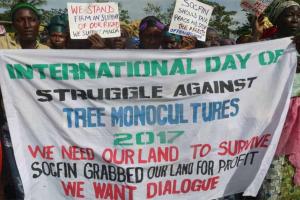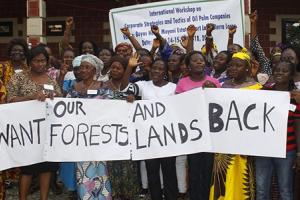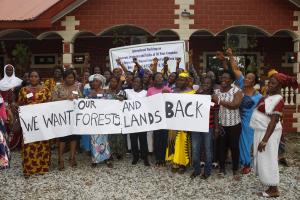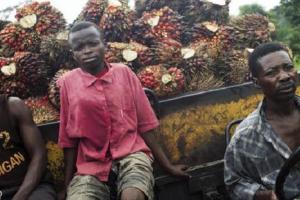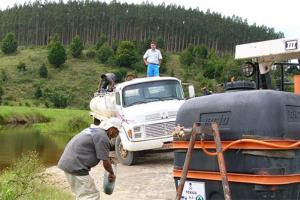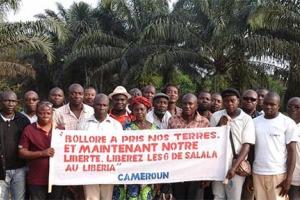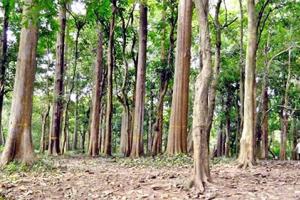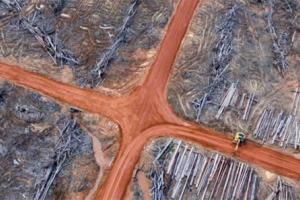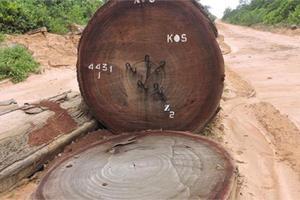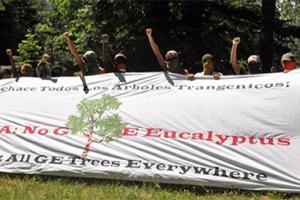Hereby we share a number of activities, new materials and media coverages from different countries to commemorate the International Day of Struggle Against Monoculture Tree Plantations 2017.
- Women organizations from several countries from West and Central Africa launched the petition: “Stop all forms of abuse against women in large-scale monoculture tree plantations”.
21/09/2017
On September 21st we celebrate the International Day of Struggle against Tree Monocultures.
This date, that was launched in 2004, in Brazil, by the Alert against the Green Desert Network, serves to create a special moment in the year to denounce the serious negative impacts of the industrial model of timber production on communities and local ecosystems. Year after year, organizations and social movements carry out a number of activities during this month to give visibility to their struggles and to denounce the negative impacts plantations have on their livelihoods and territories. But above all, September 21st is a date to celebrate the resistance and solidarity and to say no more tree monocultures!
Other information
26 September 2017
MALOA, SILNORF, WRM, Bread for All and GRAIN | 25 September 2017
On September 21, 2017 about 150 to 200 women were stopped by police on their way to Pujehun to urge local authorities to take action against the Luxembourg-based oil palm plantation company SOCFIN for grabbing their lands and committing other related human rights abuses. The women were travelling from Malen Chiefdom and were stopped by road blocks set up by the police at Benga Junction, about 4 km outside of Pujehun, the capital of Pujehun District, Sierra Leone.
Bulletin articles
25 September 2017
Large-scale monoculture plantations “rob women of everything they have as they take the agricultural lands and forests that women depend upon for their livelihoods and for feeding their families”. This is part of the final declaration of a workshop organized in Port Loko, Sierra Leona, in August 2017, which brought together women from Sierra Leona’s Northern, Southern and Eastern regions, together with representatives from Cameroon, Liberia and Guinee. (1)
Action alerts
25 September 2017
On occasion of September 21st, International day of Struggle against Tree Plantations, women from several countries from West and Central Africa have taken the initiative to release simultaneously the petition we enclose below.
The petition is an urgent request from women in Africa to stop the suffering and the violent impacts the expansion of industrial oil palm plantations is creating on womens´ lives, that affect women in and outside the African continent: Violence, sexual abuses, rape, harassment, persecution, destruction of their means of livelihoods.
Bulletin articles
21 September 2017
Oil palm plantations managed by the Canadian-based agribusiness company FERONIA Inc have been opposed by local residents ever since they were established by the previous owner of the plantations, multinational food company Unilever. Incidents of violent abuse and conflict arising from the company’s oil palm plantations in the Democratic Republic of the Congo (DRC) have been a regular occurrence. In 2015, seven children were left orphaned after police killed both indigenous pygmy parents for taking some oil palm fruits from the plantations to feed their children.
Bulletin articles
21 September 2017
The process of territorial transformation in the southernmost part of Bahia is closely intertwined with agriculture in Brazil, and is based on an extremely unequal territorial structure that has been in place since colonial times. But this has recently been exacerbated by the imposition of a single model of extensive and intensive production, using land, water, agrochemicals, chemical inputs, large machinery and biotechnology. This is agribusiness in general, and in particular, the eucalyptus plantations that supply huge pulp mills.
Bulletin articles
21 September 2017
For over 20 year now, certification schemes such as the Forest Stewardship Council (FSC) and the Roundtable on Sustainable Palm Oil (RSPO) (1) have helped plantation companies secure their profits and protect their reputation. How do they do that, when the impacts of large-scale industrial eucalyptus, pine, acacia and oil palm plantations are so obvious for all to see?


